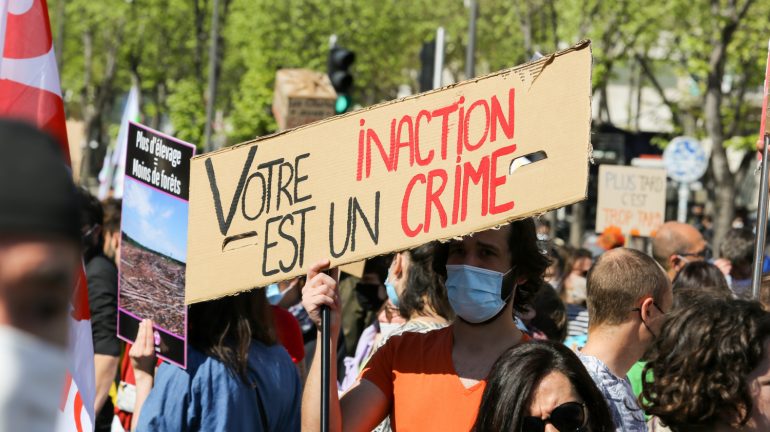New Tools for Environmental Protection in the Mediterranean: Recognition of the Crime of Ecocide
Environmental criminality as a complex global phenomenon
Crimes against the environment disrupt global values shared by the international community as a whole and are a growing concern due to the significant, irreversible and long-term damage they can cause both to the natural environment and to human health. The seriousness of the impact and consequences of environmental crimes and the relevance of the collective interests that they affect are the main arguments in favour of the international criminalisation of certain environmental harms.
Combating environmental crimes is at the top of the agenda of international organisations at both universal and regional levels. The fight against such crimes is an aspect of what the United Nations term as “the environmental rule of law”; it is also included by the Council of the European Union among the crime-combating priorities for 2022-2025.
Environmental criminality is a complex and multifaceted phenomenon. It involves a diversity of actors that include states, legal persons, corporations, individuals, and organised criminal groups. It encompasses a broad range of activities causing environmental harm, not all of them being criminalised or typified as crimes in either international law or domestic law. It causes devastating effects on both the ecosystem (in terms of environmental damages, natural disasters, and long-term effects such as loss of biodiversity and climate change) and on human beings (threats to public health, injuries to persons, loss of lives…). Moreover, from a strict legal perspective, environmental crimes fall under multiple responsibility and liability regimes (international responsibility of states, criminal responsibility of individuals, civil/administrative/criminal corporate responsibility) and hence imply different legal responses and possible remedies (international proceedings and reparation in inter-state disputes, prosecution and penalties for environmental criminals, access to justice and redress for victims, including through international human rights machineries).
Tackling this global phenomenon is made even more difficult by two major factors: first, no general consensus has so far been reached in the relevant international fora on a universally agreed definition of “environmental crime” under international law; second, there is as yet no recognition of “ecocide” as a general category of environmental crimes.
Possible definitions of “environmental crime”
As far as the definition of “environmental crime” is concerned, it has to be noted that in the 1980 Draft Articles on the Responsibility of States for Unlawful Acts, the International Law Commission defined as a crime under international law “a serious breach of an international obligation of essential importance for the safeguarding and preservation of the human environment.”[1] The ILC Commentary clarified that such crimes could encompass the pollution of vast areas of the atmosphere, the sea and the land; the destruction of fauna over huge areas in the oceans, and thus of essential sources of food for whole populations; the transformation of fertile regions into arid and unproductive land; the spread of poisons, bacteria and other chemical agents fatal to man or animals; modifications of weather and climate; and the degradation of groundwater supplies and of the quality of drinking water and irrigation water. The adoption of the 2001 Draft Articles and the disappearance of Article 19 on international crimes and delicts left a significant normative gap in terms of a possible generally agreed definition of environmental crimes.
In diverse legal and institutional frameworks, other tentative general definitions are offered. According to the European Commission, environmental crimes cover acts that breach environmental legislation and cause significant harm or risk to the environment and human health. UNEP and INTERPOL agree that environmental crimes “encompass illegal activities harming the environment and aimed at benefitting individuals or groups or companies from exploitation of, or damage to, trade or theft of natural resources, including serious crimes and transnational organized crimes”,[2] while EUROPOL and EnviCrimeNet suggest that “any illegal action with a negative, harming impact on the environment” can be defined as an environmental crime.[3]
From a substantive point of view, international environmental crimes can be defined across five broad areas of offences, which have been recognised by the UN, EU, UNEP, INTERPOL and the UN Interregional Crime and Justice Research Institute (UNICRI): illegal trade in wildlife; illegal logging and trade in timber; dumping and illegal transport of hazardous waste; illegal trade in ozone-depleting substances; illegal, unregulated and unreported fishing in contravention to controls imposed by various regional fisheries management organisations.
Legal sources applicable to environmental crimes under international and EU Law
From a multilevel legal perspective, various legal regimes are applicable under international law and EU law, including the relevant rules on state responsibility, the general principles of international environmental law, European Union law (arts. 4 and 191 of the Treaty on the Functioning of the EU, art. 37 of the Charter of Fundamental Rights of the EU) and European environmental law (relevant EU directives and regulations).
However, protecting the environment through criminal law is considered the best possible response to those offences posing serious threats to the environment and public health. In this respect, the most important international and European sources of law include Multilateral Environmental Agreements imposing the criminalisation of environmental harm under domestic law (i.e., the 1973 Convention on International Trade of Endangered Species of Wild Fauna and Flora [CITES], the 1973/78 Convention on the Prevention of Pollution from Ships [MARPOL], the 1989 Convention on the Control of Transboundary Movements of Hazardous Waste and Their Disposal [Basel Convention]), international criminal law (art. 8[2][b][iv] of the Rome Statute of the International Criminal Court; ICC Office of the Prosecutor’s Policy Paper of 2016 on Case Selection and Prioritization) and European criminal law (Directive 2008/99/EC of the European Parliament and of the Council of 19 November 2008 on the protection of the environment through criminal law – better known as the Environmental Crime Directive or ECD).
At the European level, the major legal source of reference is the ECD, which requires that EU member states ensure that a number of conducts constitute criminal offences under domestic criminal law when unlawful and committed intentionally or with at least serious negligence. These include under art. 3 ECD: the discharge, emission or introduction of a quantity of materials or ionising radiation into air, soil or water; the collection, transport, recovery or disposal of waste; the shipment of waste; the operation of a plant in which a dangerous activity is carried out or in which dangerous substances or preparations are stored or used; the production, processing, handling, use, holding, storage, transport, import, export or disposal of nuclear materials or other hazardous radioactive substances; the killing, destruction, possession or taking of specimens of protected wild fauna or flora species; trading in specimens of protected wild fauna or flora species; any conduct which causes the significant deterioration of a habitat within a protected site; the production, importation, exportation, placing on the market or use of ozone-depleting substances.
Upon evaluation of the ECD in 2020,[4] a number of limitations and shortcomings were revealed and the European Commission issued a proposal for revision of the same Directive.[5] This proposal aims to update and refine the list of criminal offences; to provide specific and clear descriptions of criminal offences; to extend the scope of the ECD in line with impending and forthcoming new legislation under the European Green Deal; to strengthen the provisions on criminal sanctions, by harmonising sanction types and levels, enhancing their deterrent effect and a more consistent application across the EU; to improve and strengthen the enforcement chain; to increase the effectiveness of cross-border investigation and prosecution; to recognise and strengthen the role of citizens and civil society through mobilisation, reporting and whistleblowing.
The environmental crimes to be included in the revised ECD are: illegal timber trade, illegal ship recycling, illegal water abstraction causing substantial damage to water resources, serious breaches of EU chemical legislation, placement on the market of products causing substantial damage to the environment and human health, source discharge of polluting substances from ships, serious breaches of EU legislation on alien invasive species, serious circumvention of requirements to get consent and to do an environmental impact assessment, serious breaches related to dealing with fluorinated greenhouse gases.
In addition to this important move towards a revision of the ECD, the European Union is also strongly considering the inclusion of the crime of ecocide in the revised text of the Directive, in support of the international movement in favour of the recognition of “ecocide” as a crime under international law.
The international movement in favour of the recognition of the crime of “ecocide”
The crime of ecocide is broadly understood to mean mass damage and destruction of ecosystems and severe harm to nature that is widespread or long-term.
The concept of ecocide as an international crime originated in the 1970s and a “Draft Ecocide Convention” was prepared by the late international law scholar Richard A. Falk in 1973. In 2010, a proposal to amend the Rome Statute to include an international crime of ecocide was submitted by the late UK lawyer Polly Higgins to the International Law Commission. She suggested that ecocide should be defined as “the extensive damage to, destruction of or loss of ecosystem(s) of a given territory, whether by human agency or by other causes, to such an extent that peaceful enjoyment by the inhabitants of that territory has been or will be severely diminished.”
More recently, in response to increasing political demand, the Stop Ecocide Foundation convened a Panel of Independent Experts who provided in June 2021 their definition of ecocide as “the unlawful or wanton acts committed with knowledge that there is a substantial likelihood of severe and either widespread or long-term damage to the environment being caused by those acts.”[6]
The Panel proposed the following amendment to the Rome Statute in order to include the crime of ecocide as the fifth major crime under international criminal law:
Article 8 ter – Ecocide
- For the purpose of this Statute, “ecocide” means unlawful or wanton acts committed with knowledge that there is a substantial likelihood of severe and either widespread or long-term damage to the environment being caused by those acts.
- For the purpose of paragraph 1:
- “Wanton” means with reckless disregard for damage that would be clearly excessive in relation to the social and economic benefits anticipated;
- “Severe” means damage that involves very serious adverse changes, disruption or harm to any element of the environment, including grave impacts on human life or natural, cultural or economic resources;
- “Widespread” means damage that extends beyond a limited geographic area, crosses state boundaries, or is suffered by an entire ecosystem or species or a large number of human beings;
- “Long-term” means damage that is irreversible or cannot be redressed through natural recovery within a reasonable period of time;
- “Environment” means the earth, its biosphere, cryosphere, lytosphere, hydrosphere and atmosphere, as well as outer space.
This proposal and the development of ecocide law is strongly supported worldwide, also at domestic level, with many states having already included ecocide in their criminal legislation.
In Europe, the EU is also advocating the recognition of this crime under international and EU law. In its communication to the European Parliament and the Council (COM [2021] 814 final of 15 December 2021), the Commission stated that it would “closely follow international developments concerning the definition of and possible responses to ecocide,” while the European Parliament in its resolution on “Human rights and democracy in the world” of 17 February 2022 “encourage[d] the EU and its Member States to promote the recognition of ecocide as an international crime under the Rome Statute of the ICC and request[ed] that the Commission study the relevance of ecocide to EU law and EU diplomacy.” Moreover, recognition of a crime of ecocide in the context of the revised 2008 ECD will reinforce existing laws, providing a foundational piece that is currently lacking. In this respect, the European Parliament is expected to vote on the inclusion of the crime of ecocide in the revised ECD by April 2023.
[1] International Law Commission, Draft Articles on State Responsibility: Text of the Articles of Part 1 (Arts. 1-35) of the Draft adopted by the Commission on first reading, Report of the International Law Commission on the work of its thirty-second session, 5 May-25 July 1980 (A/35/10), p. 30 et seq.; Yearbook of the ILC 1980, Vol. ii (Part Two).
[2] United Nations Environment Programme (2016), The rise of environmental crime: A growing threat to natural resources peace, development and security, https://wedocs.unep.org/20.500.11822/7662
[3] EnviCrimeNet, Report on Environmental Crime in Europe, 20 February 2015, https://www.europol.europa.eu/sites/default/files/documents/ipec_report_on_environmental_crime_in_europe.pdf
[4] Evaluation of the Directive 2008/99/EC of the European Parliament and of the Council of 19 November 2008 on the protection of the environment through criminal law (Environmental Crime Directive), SWD (2020) 259 final, 28 October 2020.
[5] Proposal for a directive of the European Parliament and of the Council on the protection of the environment through criminal law and replacing Directive 2008/99/EC, COM (2021) 851 of 15 December 2021.
[6] See commentary and core text available at https://www.stopecocide.earth/legal-definition
This article is an outcome of the lecture Stefania Negri offered at the IEMed in the framework of the Aula Mediterrania 2022-23 series. Watch again the full lecture.






